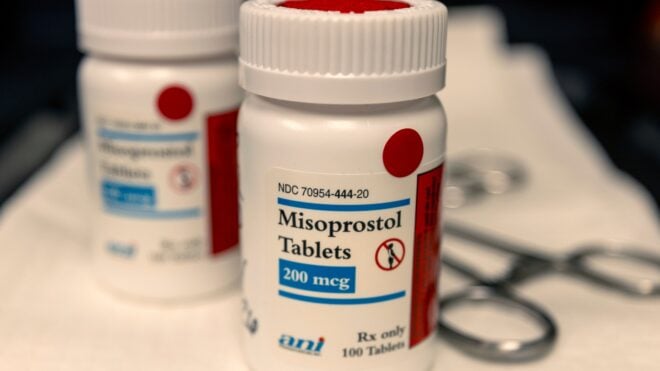Here at LittleThings, we think every woman should know as much as they can about their bodies.
That includes the areas "down there."
It may not be the most fun to talk about our private areas, but it's important to be informed about our vaginas in order to know if anything is ever wrong.
Most of the time, we only pay extra care to our downstairs areas when something is wrong, like when there's a funky smell. But we should actually be more conscious of something we do every single day: bathing.
Washing your vagina probably feels like second nature; any time you take a shower or bath, you wash your hair and your body — your vagina is no exception.
But there's a good chance you're actually washing your vagina the wrong way.
Keep scrolling to find out more about the safest and most effective way to wash the most delicate area of your body.
Thumbnail Photo: Instagram / riversmonroedoc
Why Does It Matter How You Wash Your Vagina?

The UK's National Health Service (NHS) explains that there are important bacteria in your vagina that actually keep it healthy.
When the balance of these bacteria gets out of whack, it can lead to inflammation and infection.

The NHS explains that if the vagina's pH increases too much, it "can result in infections such as bacterial vaginosis or thrush, which can cause symptoms including itching, irritation and abnormal discharge."
How To Wash Your Vagina Correctly #1: Use A Very Mild, Unscented Soap

The vagina and surrounding areas are more sensitive than other parts of the skin, so it can react differently.
This means that even if you use certain soaps on the rest of your body with no problems, your vagina might still have a negative reaction.

"It's a good idea to avoid perfumed soaps, gels and antiseptics as these can affect the healthy balance of bacteria and pH levels in the vagina and cause irritation," explains the NHS.
#2: Focus On The Area Surrounding The Vagina

The Cleveland Clinic explains, "The vagina cleanses itself naturally in the form of normal, vaginal discharge."
What that means is that you don't need to clean the inside of your vagina. You should still wash the surrounding areas — the vulva.
#3: Only Use Your Hand Or A Washcloth

When washing your vagina, only use a washcloth or your hand.
Although you may use loofahs or brushes on other parts of the body, the vagina is too sensitive for these items and may become irritated if you use them.
#4: Wash It Once A Day

The NHS says that you should "Use plain, unperfumed soaps to wash the area around the vagina (the vulva) gently every day."
To keep the vagina's pH levels and bacteria levels balanced, you should wash the area one time each day.

During your period, it may be helpful to wash it more than once a day.
#5: Be Gentle

You probably already know this, but your vagina's skin is soft and sensitive.
Just like you shouldn't use loofahs and brushes down there, you should also avoid using scrubs or exfoliants. Even if they work wonders on the rest of your body, they could be harmful to your vagina.
#6: Pat Or Air-Dry

Vaginal bacteria and pH levels can be disrupted if you let your vagina sit in moist clothing. This is why people often get yeast infections after sitting in wet bathing suits.
After washing your vagina, you need to make sure to dry the area well — but be careful not to scrub, since that could irritate the skin.

The best way to dry your vagina is to pat it gently with a towel, then let it air-dry.
#7: Never Ever Douche

Douching was popular for many years, but it actually has no proven benefits.
"A douche flushed water up into the vagina, clearing out vaginal secretions," explains the NHS. "Some women use a douche to 'clean' the vagina, but using a douche can disrupt the normal vaginal bacteria, so it isn't recommended that you use one."
#8: Listen To Your Body

The most important thing you can do when it comes to your vaginal health is to listen to your body.
You know your vagina better than anyone else, so if you think there's something wrong, get it checked out by a doctor.

And be gentle! Your vagina can mostly take care of itself. You're just there to help the outside stay clean and healthy.
If you think every woman should know more about her vagina, please SHARE this article with your friends and family!




